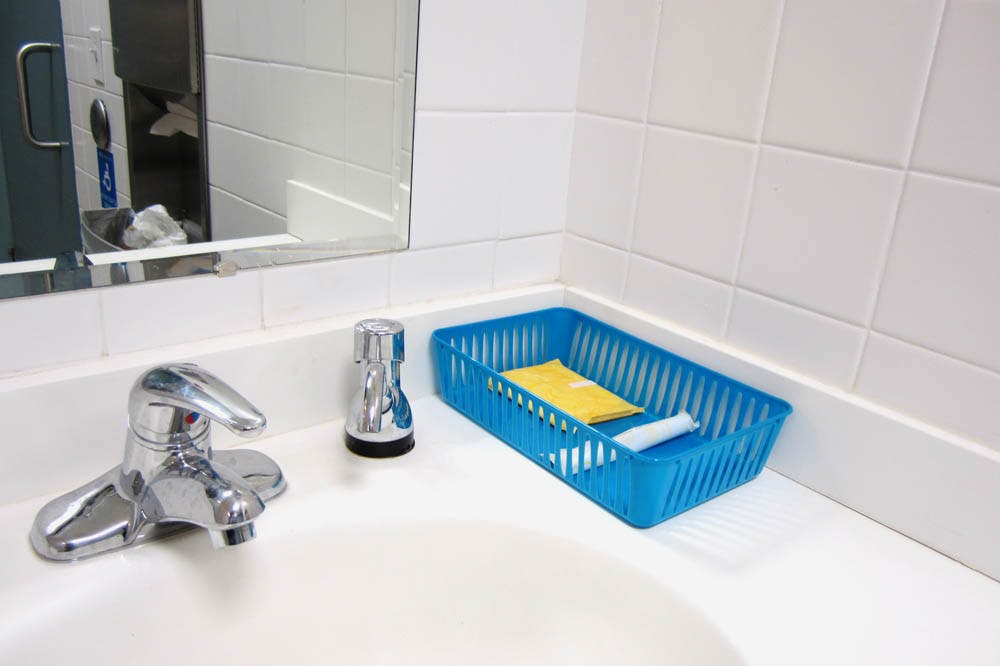The Undergraduate Council of Students is in conversations with the Department of Facilities Management to have the University take over Project Tampon, which would mean stocking bathrooms on campus with free tampons and pads, said UCS President Chelse-Amoy Steele ’18. This semester, UCS halted distribution of tampons and pads without issuing a formal statement to the student body. Instead, the group focused on negotiating a transfer of the project to Facilities Management, Steele said. She expressed hope that Facilities Management would begin distributing products by this semester at a UCS general body meeting in October. However, this transition has yet to be finalized.
The shift would have Facilities Management assume distribution of menstrual products from UCS, which circulated tampons and pads to several bathrooms on campus from the fall 2016 semester through the fall 2017 semester after formally launching the program under former UCS President Viet Nguyen ’17. Under Nguyen, the Undergraduate Finance Board provided funding for the project, while the Office of the President financed the initiative last semester, The Herald previously reported.
“UCS and (Facilities Management) are still in conversations as to this program’s future,” Director of Custodial Services Donna Butler wrote in an email to The Herald. “We are working together to further define the scope of this program before any next steps are made.”
To build a case for Facilities Management to adopt the project, “UCS collected research and distribution data for the 52 bathrooms that we serviced” in fall 2017, Steele said. The proposal that Steele submitted to Facilities Management “included a summary of that data,” highlighting which bathrooms saw the most use, she added.
When Project Tampon started in September 2016, the UCS Student Wellness Committee handled distribution under the leadership of Britt Edelen ’19, the committee’s chair at the time. “As the leader of the committee, I was responsible for all the ordering of all the products and making sure everything was stocked,” Edelen said, adding that the approximately five-member committee restocked around 40 bathrooms twice a week.
The main goal of the initiative last year was to prove that distributing free tampons and pads was a worthwhile initiative, Edelen said. Though there were not “official conversations” with Facilities Management at the time, Edelen said, UCS hoped effective implementation of the project would enable them to “ask in our second year of doing the program” for the University to increase its involvement.
Last fall, UCS members and student volunteers distributed menstrual products to the selected bathrooms, said Claudia Liu ’21, who served as the fall distribution manager for Project Tampon. “Every Wednesday night and Sunday night … we would meet, and based on the turnout for the meeting I would assign (distribution) locations,” Liu added.
When Nguyen introduced Project Tampon, he expressed hope that the University would eventually take over implementation of the initiative. Institutional support for this type of project is not unprecedented — the University of Minnesota and Emory University, for instance, supported similar programs. But these initiatives are not always successful. In September 2016, for example, Columbia ended a pilot program through which it distributed free products in its health office because of a lack of interest.
Steele noted that “Project Tampon was never meant to remain a student-led initiative.” If Facilities Management takes over, “it would make Brown University one of the first universities in the country to make menstrual products accessible and free for all students,” she added.





